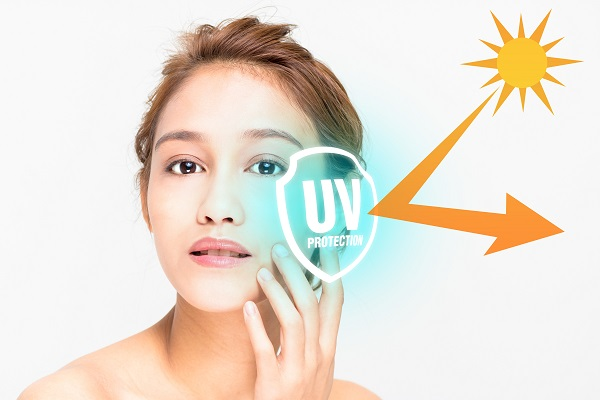Zeaxanthin is one of many carotenoids found in nature. It's a dietary component closely related to vitamin A and lutein, which are essential to overall eye health. Zeaxanthin has been described as a "visual pigment" due to its presence in the macula – the part of the eye responsible for sharp and central vision.
Its antioxidant capabilities may also reduce risks for age-related macular degeneration (AMD). This article explores how it impacts the body and examines potential health benefits associated with adding it to your daily diet.
Defining zeaxanthin
Zeaxanthin is a carotenoid, or plant-based pigment, found in many fruits and vegetables. It contains high concentrations of antioxidants that benefit overall eye health. In the eye, zeaxanthin accumulates in the macula – the part responsible for sharp and central vision – where it acts as a “visual pigment” to protect against age-related macular degeneration (AMD).
By supporting the structure of cells in the retina, zeaxanthin can also help maintain healthy vision. Additionally, some research suggests that taking natural supplements containing zeaxanthin may help reduce levels of oxidative stress and thus further promote eye health. Thus, supplementing with dietary sources of zeaxanthin can be beneficial in keeping your eyes healthy.
Given its powerful antioxidant content, zeaxanthin may also offer various other health benefits, including potential protection from cardiovascular disease and cancer. Preliminary studies have suggested that it could help reduce inflammation, improve insulin sensitivity, and play a role in cognitive health.
While more research is needed to confirm these findings, adding zeaxanthin to your daily diet could provide additional health benefits beyond eye support.
Antioxidant and anti-inflammatory properties in the eye

The antioxidant and anti-inflammatory properties of zeaxanthin make it important for maintaining eye health. Its presence in the macula helps to protect against age-related macular degeneration (AMD) by supporting the structure of cells in the retina and reducing levels of oxidative stress. It is also thought to help reduce inflammation, which can tremendously affect vision.
When taken as a supplement or consumed through dietary sources like dark leafy greens, orange peppers, and some fish, zeaxanthin can provide additional benefits beyond AMD. This carotenoid has been shown to reduce inflammatory markers associated with cardiovascular disease risk and certain types of cancer.
Additionally, its antioxidant properties can help improve insulin sensitivity, which is important for managing diabetes. Furthermore, the anti-inflammatory effects of zeaxanthin may even aid in cognitive health.
Reduced risk of eye disease
Adding zeaxanthin to your daily diet can positively impact your overall eye health. Zeaxanthin is known to be a “visual pigment” due to its presence in the macula, which is responsible for sharp and central vision. This carotenoid has been shown to protect against age-related macular degeneration (AMD). By supporting the structure of cells in the retina, it can also help maintain healthy vision and reduce levels of oxidative stress.
Studies have demonstrated that consuming dietary sources of zeaxanthin or taking supplements containing this nutrient may reduce the risk of AMD progression. Furthermore, supplemental zeaxanthin has been linked with reduced risks for glaucoma and cataract formation.
In particular, a randomized trial found that supplementation with this carotenoid was associated with improved macular pigment optical density and visual performance in those with glaucoma, indicating potential protective effects.
Given these findings, incorporating dietary sources of zeaxanthin may be beneficial for reducing the risk of eye disease. Fruits and vegetables such as dark leafy greens, orange peppers, and some fish are all rich sources of this nutrient.
Additionally, supplements containing natural forms of zeaxanthin can provide added benefits in protecting against eye diseases. Adding zeaxanthin to your daily diet or supplementing with it can help support healthy vision and reduce risks for age-related eye diseases.
It may improve brain health and cognition
Zeaxanthin may also offer potential benefits for brain health and cognitive performance. The antioxidant and anti-inflammatory properties that benefit eye health may also contribute to improved thinking skills, memory, and concentration.
A few small studies have shown that supplementing with zeaxanthin can increase blood flow to the brain's frontal lobe – a region associated with executive functions such as decision-making, planning, and problem-solving. Additionally, its ability to reduce levels of oxidative stress could help protect against age-related cognitive decline.
UV protection and skin health
UV protection and skin health are crucial for overall wellness. Zeaxanthin, a carotenoid found in many fruits and vegetables, may offer potential benefits for both. As an antioxidant, it can protect against oxidative damage caused by sun exposure. Studies indicate that zeaxanthin may help reduce the risk of skin cancer and premature aging.
By improving blood flow to the skin's outer layers, zeaxanthin also helps nourish the cells with essential nutrients. This increased blood supply enables more efficient nutrient delivery and waste removal, allowing normal tissue growth and repair processes. Furthermore, its anti-inflammatory properties can help reduce redness and irritation associated with sunburns or other types of inflammation on the skin.
Incorporating dietary zeaxanthin or supplementing with it may provide several benefits for protecting your skin from UV rays and other environmental stressors. Foods such as dark leafy greens, orange peppers, some fish, and eggs are good sources of this carotenoid. Additionally, topical applications of products containing natural forms of zeaxanthin can also help to enhance its antioxidant effects when applied directly to the skin.
Other potential Health benefits
In addition to potential benefits for eye and skin health, zeaxanthin may provide several other benefits. It's antioxidant and anti-inflammatory properties can help reduce levels of oxidative stress throughout the entire body. Higher intake of dietary zeaxanthin has been linked with reduced risk of cardiovascular disease, improved insulin sensitivity, and protection from certain types of cancer.
Recent studies suggest that zeaxanthin may help support cognitive performance by increasing blood supply to the brain's frontal lobe – a region associated with executive functions such as decision-making, planning, and problem-solving. Additionally, its ability to reduce levels of oxidative stress could also help protect against age-related cognitive decline.
Thus, incorporating dietary sources of zeaxanthin like dark leafy greens, orange peppers, and some fish into your daily diet can provide several health benefits beyond eye and skin health. Additionally, supplementing with zeaxanthin in natural forms may offer added protection from oxidative damage throughout the body. With its wide range of potential benefits, adding this essential carotenoid to your daily diet or supplement routine may benefit overall wellness.
FAQs
What is the difference between lutein and zeaxanthin?
Lutein and zeaxanthin are both carotenoid compounds found in many fruits and vegetables. Lutein is most commonly found in green leafy vegetables like spinach, while zeaxanthin is found in orange peppers and some fish. While they both have similar antioxidant properties, lutein has been studied more extensively for its potential eye health benefits than zeaxanthin.
What foods contain zeaxanthin?
Foods rich in the carotenoid zeaxanthin include dark leafy greens, such as kale and spinach; orange peppers; some fish, including salmon and tuna; eggs; corn; squash; broccoli; mangoes; papaya; kiwi fruit; oranges; yellow-fleshed peaches; and sweet potatoes. Additionally, many supplements are now available containing zeaxanthin in its natural form.
What are the side effects of zeaxanthin?
No significant side effects have been reported from taking zeaxanthin or consuming foods containing it. However, as with any supplement or nutrient, it’s important to speak to your doctor before adding a new one to your daily routine. This is especially true if you already take other medications or have a medical condition. Furthermore, excessive consumption of carotenoids can cause yellowing of the skin (carotenemia) which typically resolves when intake of these compounds is reduced.
Conclusion
The carotenoid zeaxanthin offers a wide range of potential health benefits. It helps protect the eyes from age-related macular degeneration and other eye diseases and may also boost brain health and cognition. Additionally, its antioxidant properties can help reduce oxidative stress throughout the body, reducing risks for cardiovascular disease, improving insulin sensitivity, and offering protection from certain types of cancer.







